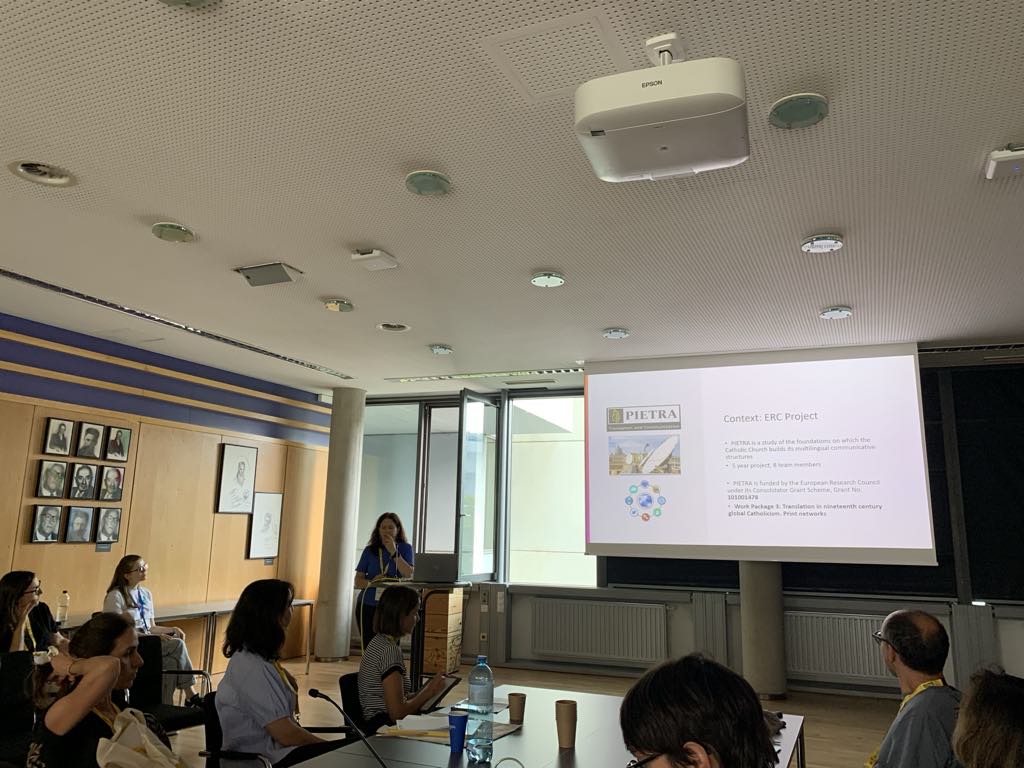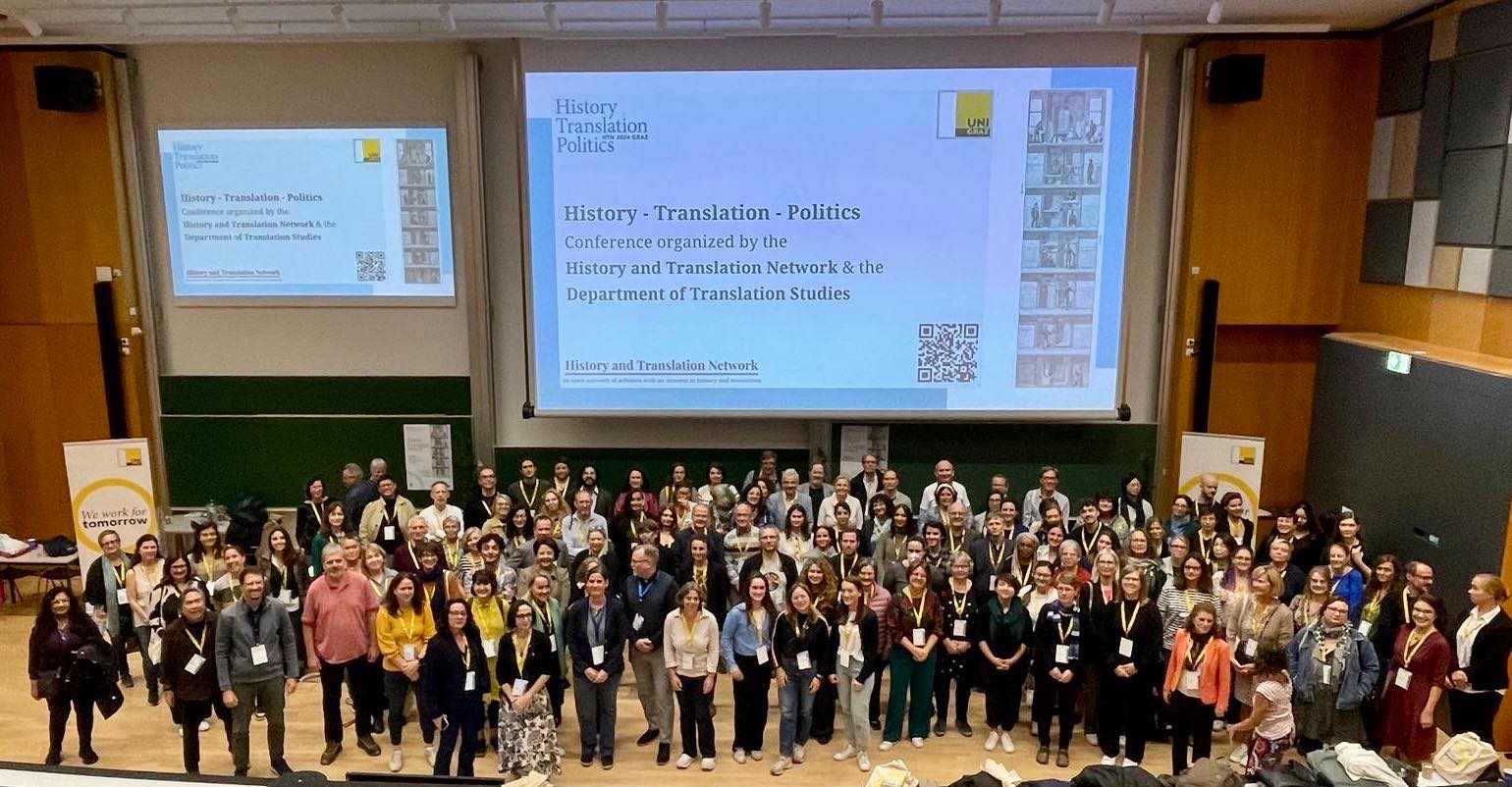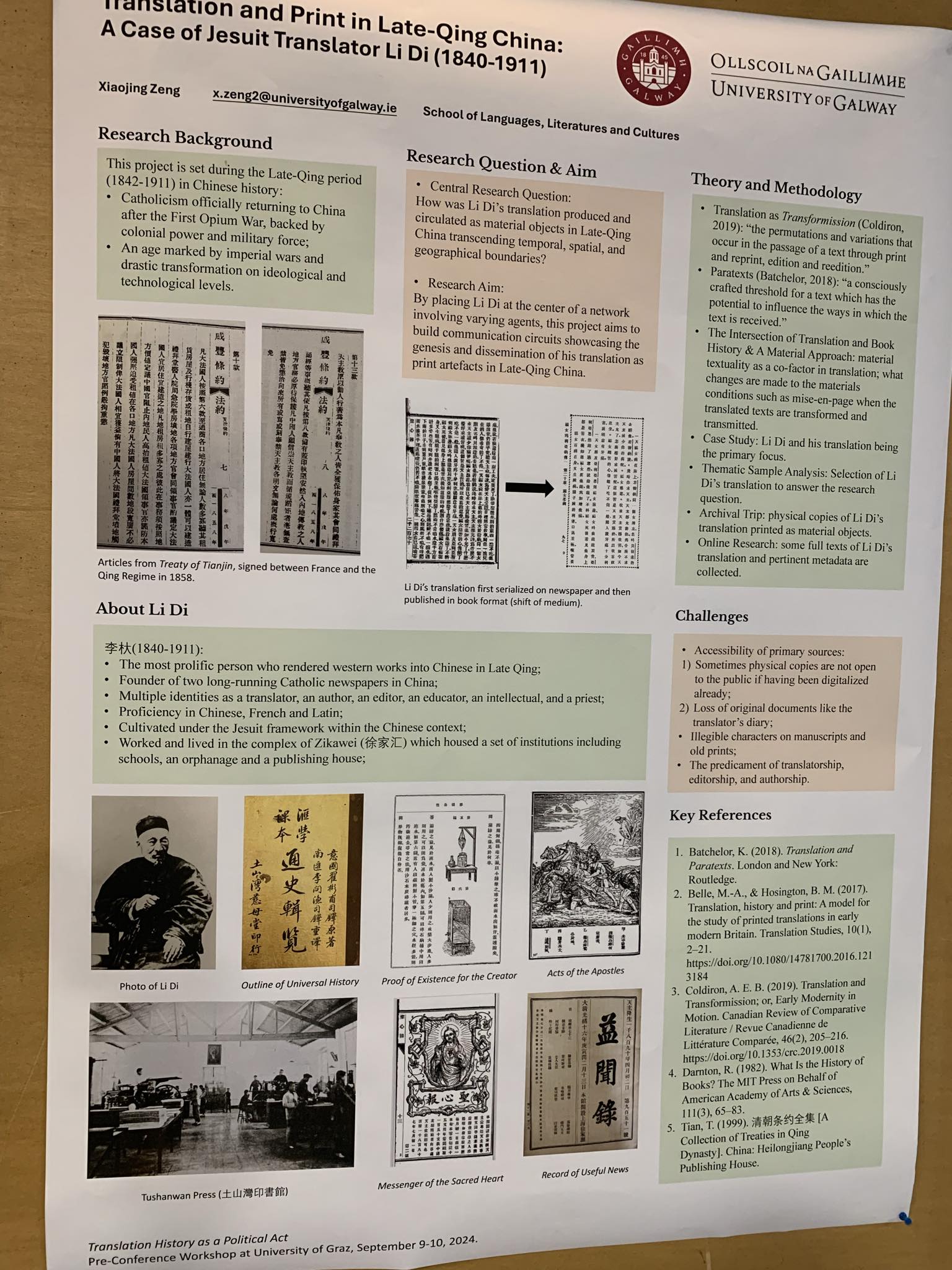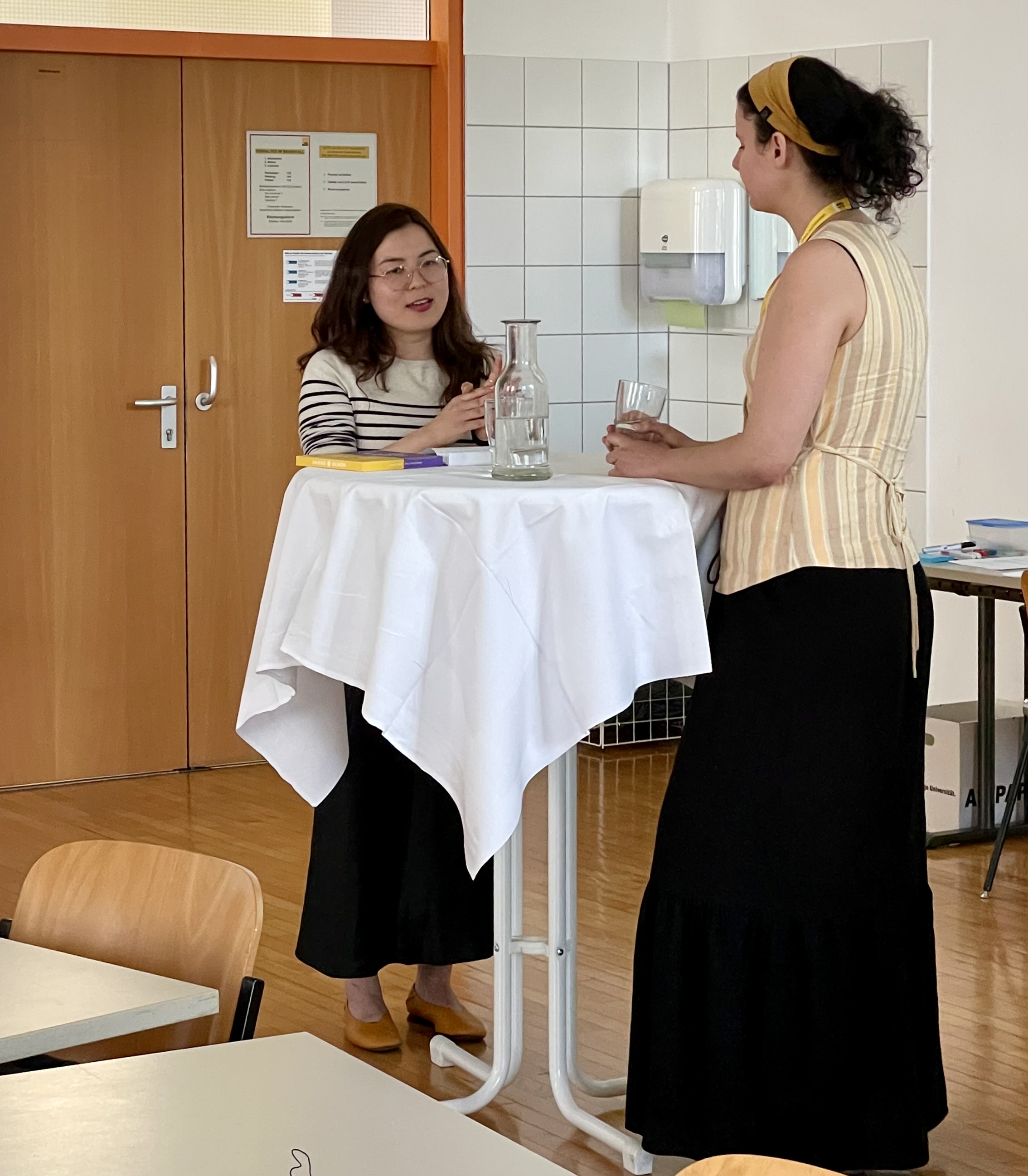
Prof. Anne O’Connor and Dr. Chris Tanasescu were delighted to join the History and Translation Network (HTN) Conference 2024 entitled “History – Translation – Politics” in September 11-14 2024, hosted in the University of Graz, Austria.
They presented in a Panel / Working Group (1.5.): Large-scale projects in translation history: practices (conveners Lieven D’hulst & Yves Gambier) on “Tracking Religious Translation in the Nineteenth Century—methodology, challenges and findings”. In this paper they outlined their methodology for documenting the extent of religious translation in the nineteenth century, discussed the challenges faced and shared some initial findings.
Full paper is available below:
We are working towards a comprehensive understanding of the movement of religious texts across Europe and further afield to emerging Catholic communities on other continents in the nineteenth century. The long temporal span and rich bibliographies available in the form of book lists published in the period’s Catholic directories, religious almanacs, and publishers’ catalogues—and to a certain extent, modern library catalogues—are balanced out by the often scant or hard to detect metadata or digitized book contents. In order to acquire a substantiated and multifaceted description of the data, we established over 20 definitory properties of those publications—from release year and place to author and translator name and gender to publisher to original language and so on—including paratextual indicators such as presence and/or authorship of prefaces, religious approbations, images, notes specific front-page or end mater/notes, etc. All of these properties will translate in a subsequent phase to data features to be computationally processed and analysed for quantifying, visualizing, and comparatively assessing the publication and (trans)national translational flows and trends between and across cultures and regions and the establishment, in the process, of complex infrastructures and networked religious communities.


Also, Xiaojing Zeng, our Doctoral Researcher participated in a pre-conference workshop, where she presented a poster called Translation and Print in Late-Qing China: A case of Jesuit Translator Li Di (1840–1911).



The History and Translation Network (HTN) was established in 2021 in response to the increasing significance of and interest in translation and interpreting history, both in translation and interpreting studies and historical studies (cf. “Manifesto”). The network has since connected a global community of scholars and practitioners from diverse disciplinary backgrounds who share the belief that acts of translation and interpreting are pivotal in the making of history and that considering their historical context is essential in comprehending said activities. One of its main objectives is to foster inter- and transdisciplinary collaboration and facilitate dialogue on the methodological and conceptual aspects of our research endeavors through conferences and other events. This vision was affirmed through the inaugural HTN conference held in Tallinn, Estonia, in May 2022 and the subsequent online follow-up event in May 2023, both of which highlighted the evident demand for such collaborative platforms.
The HTN 2024 Graz set out to continue the exchange started in these two events. Embracing the thematic focus of “History – Translation – Politics,” this year’s conference foregrounded the understanding of translation and interpreting as historically and politically contextualized activities that can potentially bring about cultural and social transfer and transformation. It probed the influence of politics on these activities while also exploring how translation politics can act as a catalyst for change within specific settings.
Conference Programme: Conference Program HTN 2024 (uni-graz.at)
Book of Abstracts: Book of Abstracts – HTN Conference 2024 (uni-graz.at)